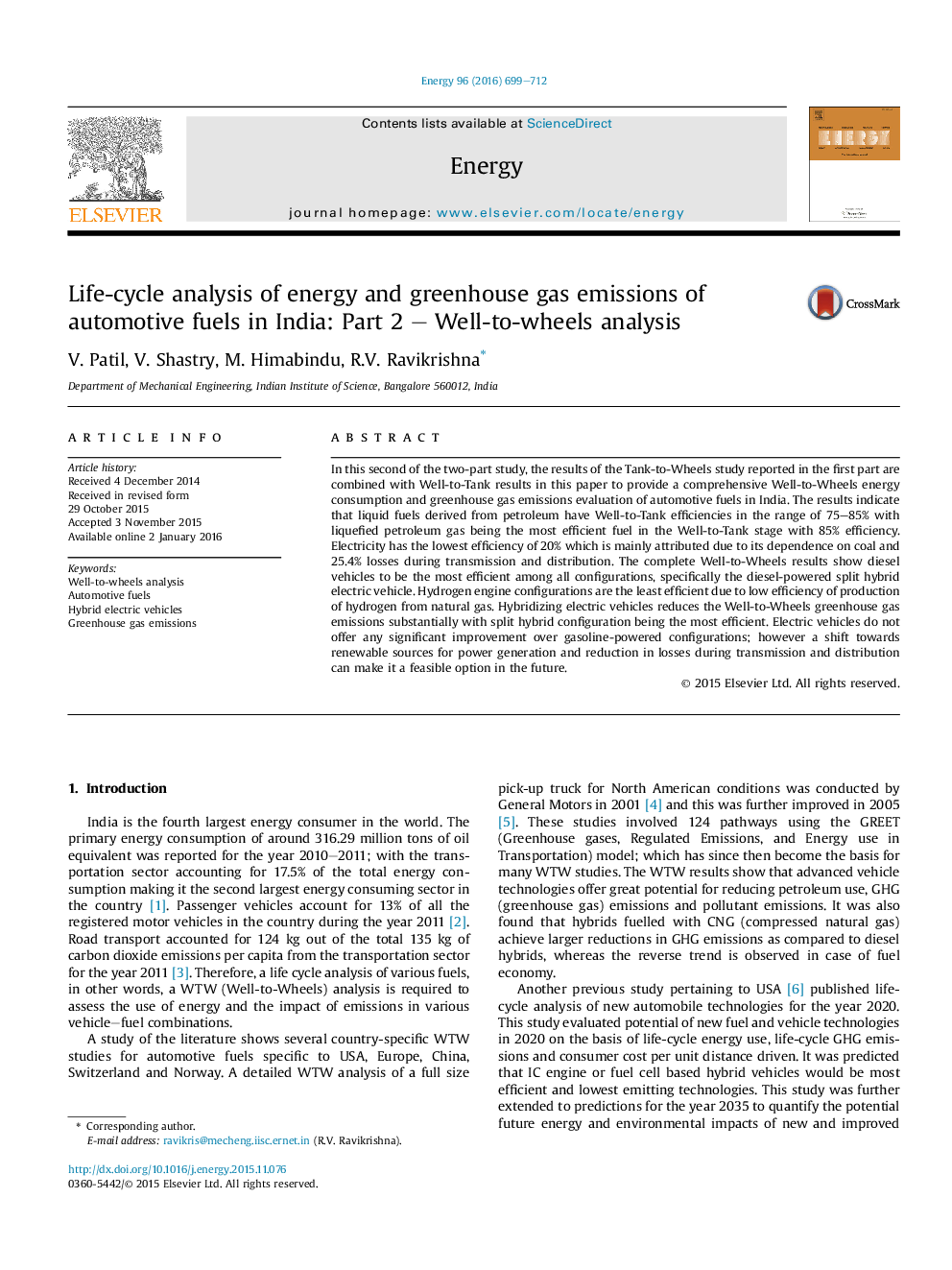| Article ID | Journal | Published Year | Pages | File Type |
|---|---|---|---|---|
| 1731305 | Energy | 2016 | 14 Pages |
Abstract
In this second of the two-part study, the results of the Tank-to-Wheels study reported in the first part are combined with Well-to-Tank results in this paper to provide a comprehensive Well-to-Wheels energy consumption and greenhouse gas emissions evaluation of automotive fuels in India. The results indicate that liquid fuels derived from petroleum have Well-to-Tank efficiencies in the range of 75-85% with liquefied petroleum gas being the most efficient fuel in the Well-to-Tank stage with 85% efficiency. Electricity has the lowest efficiency of 20% which is mainly attributed due to its dependence on coal and 25.4% losses during transmission and distribution. The complete Well-to-Wheels results show diesel vehicles to be the most efficient among all configurations, specifically the diesel-powered split hybrid electric vehicle. Hydrogen engine configurations are the least efficient due to low efficiency of production of hydrogen from natural gas. Hybridizing electric vehicles reduces the Well-to-Wheels greenhouse gas emissions substantially with split hybrid configuration being the most efficient. Electric vehicles do not offer any significant improvement over gasoline-powered configurations; however a shift towards renewable sources for power generation and reduction in losses during transmission and distribution can make it a feasible option in the future.
Related Topics
Physical Sciences and Engineering
Energy
Energy (General)
Authors
V. Patil, V. Shastry, M. Himabindu, R.V. Ravikrishna,
